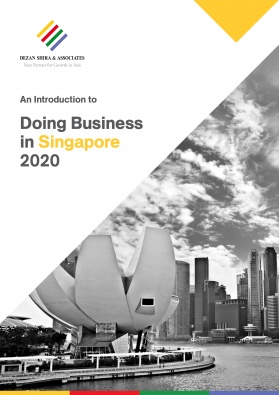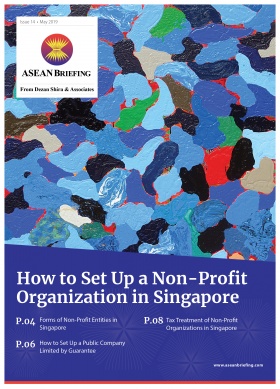Why Singapore is a Good Base for Establishing Financial Treasury Centers
- Singapore’s investor-friendly tax and legal regimes as well as its integrated financial system make the country an ideal destination to establish a financial treasury center (FTC).
- The country also has one of the most extensive double taxation networks and free trade agreements in the region that can benefit investors.
- Singapore is also a hub for multinationals incorporating their headquarters in the region, with over 4,000 HQs registered in the country.
Growth in the Asia-Pacific is forecast to remain strong and major corporations will continue to see the region as an advantageous location to establish their financial treasury centers (FTC), with Singapore being a preferred destination.
FTCs have transformed from a simple payment mechanism unit of a company to a division that assists in financial reporting, reducing the tax burden and centralizing corporate risk management. Moreover, multinationals (MNCs) are building their treasury models around regional lines as treasuries look for cost-effective measures to carry out critical decisions, such as cash and liquidity management.
Singapore’s legal and tax regime — considered one of the most investor-friendly in the world — is why the country is a leading location for FTCs. In addition, Singapore’s financial system is highly integrated with the international financial markets.Businesses looking to establish an FTC in the country should seek the help of registered local advisors to make sure they stay compliant.
Singapore’s favorable tax environment
Singapore provides generous tax incentives for businesses to incorporate their treasury management capabilities in the country.
The incentives include:
- Corporate income tax rates of eight percent for approved FTC companies on income derived from qualifying activities and services;
- Approved companies will be eligible for withholding tax exemptions on interest payments, which include interest on loans from overseas banks and non-financial institutions; and
- The incentive period for five years can be extended depending on the FTC company’s commitment to further expand its FTC activities and services.
To qualify for the aforementioned incentives, there are several assessment criteria businesses must meet.
Companies must have substantive activities in Singapore that perform key and strategic functions. Such activities include the provision of corporate finance services, investment research and analysis, and the management of foreign exchange, interest rate, and liquidity and credit risks, among others.
FTC companies will also be assessed on the qualitative and quantitative aspects of their FTC operations. Businesses will be judged on how much employment is created, including skills and expertise, and whether or not total expenditure can generate a spin-off to the economy. Additionally, the scale of the FTC operations and the capacity to form new partnerships with other sectors are other aspects that are evaluated.
Lastly, FTC companies are usually part of a larger presence of a company in Singapore and thus business expenditure should be above S$750,000 (US$550,000).
Extensive FTA and DTA networks
Singapore has the most extensive free trade agreements (FTA) at 24, and double taxation agreements (DTA) at 76, in the region.
The DTA network also includes treaties with ASEAN’s 10 member states – Brunei, Cambodia, Indonesia, Laos, Malaysia, Myanmar, Philippines, Singapore, Thailand, and Vietnam.
The country has also access to one of the world’s largest combined free trade areas due to its FTA with ASEAN, as well as with India, China, Hong Kong, and the EU. Singapore’s strong trade relations will enable the country to continue to be a hub for businesses looking to expand in ASEAN and the surrounding regions.
Singapore vs Hong Kong
Given that the tax rates in Hong Kong and Singapore are similar, there are other factors that make Singapore the more attractive FTC destination.
Hong Kong will always be the preferred option for investors looking to tap into the Chinese market, but recent unrest in the city and a slowing down of the Chinese economy has increased Singapore’s attractiveness as a regional hub situated among some of the fastest-growing economies in Asia.
Compared with Singapore, Hong Kong also has significantly fewer DTAs (31) and FTAs (7); thus, Singapore may hold an advantage for businesses that are undecided about their target markets.
An important gateway to ASEAN
The country’s geographical proximity to other ASEAN members has resulted in the development of integrated supply chains that have enabled Singapore to surpass other holding locations in the region, such as Malaysia.
Singaporeans also share various linguistic and cultural connections with ASEAN members, while still keeping English as the main working language. Furthermore, the country’s highly skilled labor force is equipped to be intermediaries for investments in ASEAN, meaning investors can create effective investment strategies that harness ASEAN’s diversity and minimize uncertainty.
About Us
ASEAN Briefing is produced by Dezan Shira & Associates. The firm assists foreign investors throughout Asia and maintains offices throughout ASEAN, including in Singapore, Hanoi, Ho Chi Minh City and Jakarta. Please contact us at asia@dezshira.com or visit our website at www.dezshira.com







